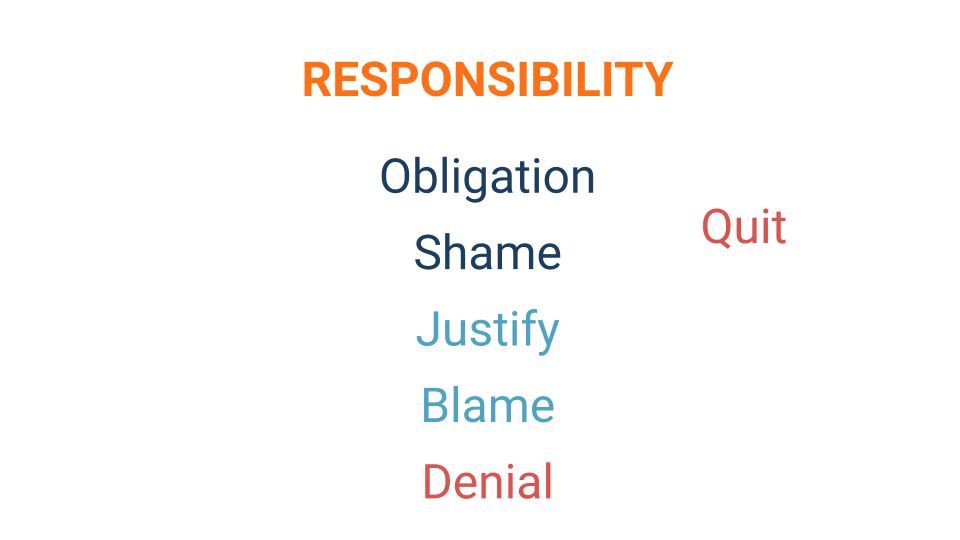Mastering the art of self-confrontation is a challenging yet rewarding endeavor. It requires consistent practice and a willingness to delve into introspection. Christopher Avery’s Responsibility Process provides a profound framework for understanding this journey. I recall a vivid experience that encapsulates the essence of this process, during a pivotal leadership team meeting at a startup near Montreal.
Mapping the Emotional Archipelago
To set the stage, I began by illustrating Avery’s process as a series of metaphorical islands on a paperboard. Each island represented a distinct emotional state encountered during the process of accepting responsibility:
- Denial Island (Red): A realm of avoidance where challenges or issues are ignored or unacknowledged.
- LayBlame and Justify Islands (Light Blue): Territories where the fault is projected onto others or rationalized through excuses.
- Shame and Obligation Islands (Dark Blue): Dark lands where self-blame prevails or actions are driven by a sense of compulsion rather than genuine desire.
- Quit Island (Red): A retreat to escape the discomforts of Shame and Obligation.
- Responsibility Island (Orange): Defined by Avery as the state of recognizing one’s power to create, choose, and attract, this island symbolizes the ultimate goal.

Embarking on a Collective Voyage
Our team agreed to anchor our discussions on Responsibility Island. We committed to being vigilant, calling out when we, or others, drifted to the other islands. This agreement was not just theoretical; it was actively practiced and enforced.
I recall an instance where, after making a sarcastic remark, a colleague gently reminded me to return to the ‘orange island’. Initially irked, I soon appreciated this as a testament to our collective commitment and bravery in upholding our pact.
Real-time Navigation and Self-Correction
Throughout our three-day meeting, there were numerous instances of participants veering off course. Yet, each time, pausing and glancing at our island map prompted a thoughtful recalibration of words and attitudes. This visual reminder served as a powerful tool for self-regulation and group accountability.
The Personal Voyage of Change
This experience underscored a fundamental truth: change begins within. We cannot directly change others; real transformation occurs when individuals recognize their potential for improvement. This shift from a fixed to a growth mindset is essential for personal development and is often fueled by intrinsic motivation and a genuine desire for change.
In conclusion, the Responsibility Process is not just a conceptual framework; it’s a practical, interactive tool that fosters self-awareness, accountability, and growth within a leadership context. By charting a course through these emotional islands, leaders can navigate the complex waters of responsibility, ultimately anchoring in the empowering shores of the blue island.

Leave a Reply